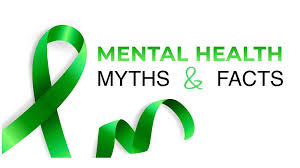Dispelling Myths: Unveiling the Truth About Mental Health

Mental health is an essential aspect of overall well-being, yet it remains shrouded in misconceptions and stigma. These myths can prevent individuals from seeking help and perpetuate misunderstanding. It’s time to separate fact from fiction and foster a more informed perspective on mental health.
Myth 1: Mental Health Problems Are Rare
Fact: Mental health issues are surprisingly common. According to the World Health Organization, one in four people will experience a mental health condition at some point in their lives. Conditions like anxiety, depression, and bipolar disorder affect millions globally, cutting across age, gender, and socioeconomic status. Recognizing the prevalence of mental health issues is the first step toward reducing stigma and encouraging open discussions.
Myth 2: Mental Illness Is a Sign of Weakness
Fact: Mental illness is not a reflection of personal weakness or character flaws. It is a medical condition influenced by a complex interplay of genetic, biological, environmental, and psychological factors. Just as diabetes or heart disease requires medical attention, so do mental health conditions. Seeking help demonstrates strength and a proactive approach to health.
Myth 3: You Can Just “Snap Out of It”
Fact: Mental health conditions are not simply a matter of willpower or positive thinking. They involve changes in brain chemistry and function, often requiring professional intervention and treatment. Telling someone to “snap out of it” is not only unhelpful but can also worsen their feelings of isolation and guilt. Effective treatments, including therapy and medication, can help individuals manage their symptoms and lead fulfilling lives.
Myth 4: Therapy Is Only for “Crazy” People
Fact: Therapy is a valuable resource for anyone facing mental health challenges, not just those with severe conditions. It offers a safe space to explore emotions, develop coping strategies, and gain insights into one’s thoughts and behaviors. People seek therapy for various reasons, including stress, relationship issues, and personal growth. Embracing therapy as a tool for mental wellness can benefit everyone.
Myth 5: Children Don’t Experience Mental Health Problems
Fact: Children and adolescents can experience mental health issues just as adults do. Conditions such as anxiety, depression, and attention-deficit/hyperactivity disorder (ADHD) often manifest in childhood and adolescence. Early intervention is crucial for effective treatment and can significantly improve long-term outcomes. Parents, teachers, and caregivers should be vigilant and responsive to changes in a child’s behavior and mood.
Myth 6: Medication Is the Only Solution
Fact: While medication can be an important component of treatment for many mental health conditions, it is not the only solution. Therapy, lifestyle changes, and support networks play crucial roles in managing mental health. Cognitive-behavioral therapy (CBT), for instance, is a highly effective treatment for anxiety and depression. Combining medication with therapy often yields the best results, tailored to the individual’s needs.
Myth 7: People with Mental Illness Are Violent
Fact: The majority of people with mental health conditions are not violent. In fact, they are more likely to be victims of violence than perpetrators. This myth is perpetuated by media portrayals and contributes to the stigma surrounding mental illness. Understanding and compassion are essential in breaking down these harmful stereotypes.
Dispelling myths about mental health is crucial for creating a more understanding and supportive society. Recognizing the prevalence of mental health issues, understanding the nature of these conditions, and appreciating the value of professional treatment are key steps in this direction. By challenging misconceptions, we can encourage more open conversations, reduce stigma, and ensure that those who need help feel empowered to seek it.
Educating ourselves and others about the realities of mental health fosters a compassionate and informed community, paving the way for better mental wellness for all.
